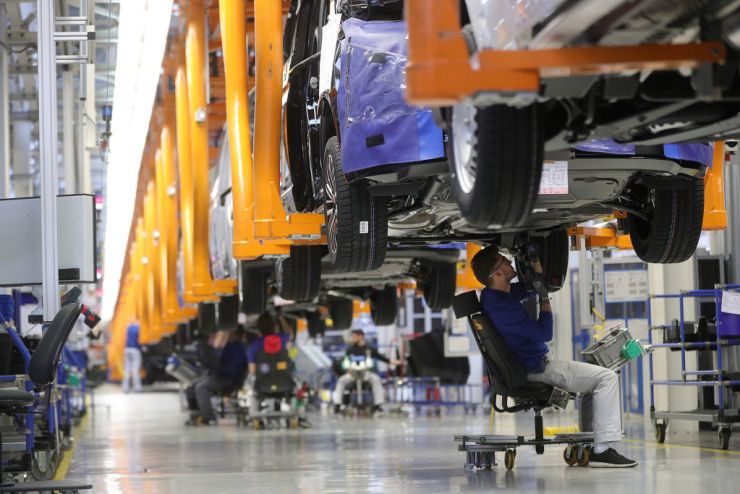
Germany’s economy witnessed lackluster growthin 2018, according to flash data released Tuesday, in line with expectations.
German gross domestic product (GDP) grew 1.5 percent in 2018, compared with 2.2 percent in 2017, the latest data from the Federal Statistics Office (Destatis) showed. The figures point to the weakest rate of growth in five years.
Destatis noted that the German economy had grown for the ninth year in a row, “although growth has lost momentum.”
“In the previous two years, the price adjusted GDP had increased by 2.2 percent each. A longer-term view shows that German economic growth in 2018 exceeded the average growth rate of the last ten years (+1.2 percent).”
The data body also said positive contributions to growth came mainly from domestic demand in 2018.
“Both household final consumption expenditure (+1.0 percent) and government final consumption expenditure (+1.1 percent) were up on the previous year. However, the growth rates were markedly lower than in the preceding three years,” it said.
German exports continued to increase on an annual average in 2018 (up 3.5 percent on the previous year), though at a slower pace than in the previous years.
An official estimate of fourth-quarter growth will only be available in February but the statistics office said it was likely that the economy had grown slightly in the period, meaning that a technical recession could have been avoided.Blame game
The country’s economy ministry said reasons for slower growth in 2018 included a globally weaker economy, sales problems in the car industry as a result of tougher pollution standards, and special effects including an outbreak of flu and strikes, were also to blame for slower growth, Reuters reported.
The ministry said the German economy was likely to remain on an upward trend at the start of 2019, however.
Carsten Brzeski, chief economist at ING Germany, said the country had escaped lightly.
“It currently looks as if the German economy could get away with one black eye but these days, economic strength in Germany doesn’t come effortlessly,” he said in a note Tuesday.
“What matters most is the fact that the slowdown of the German economy in the summer has been lasting longer than anticipated and seems to be more than only a temporary blip.” While cars played a factor in the slowing growth picture, Brzeski said Sino-U.S. trade tensions and Brexit had also weighed on the economy.
The euro fell to a session low after the weak data and was down 0.3 percent against the dollar at $1.1431. Germany’s DAX index remained in positive territory, however, up 0.3 percent.
There had been indications that the economy had slowed in the second half of 2018. GDP data released in November showed that the economy shrank in the third quarter, by 0.2 percent, marking the first time Germany’s economy had contracted since the first quarter of 2015.
Growth took a hit then due to a decline in exports and what Destatis said were “mixed signals” in terms of domestic demand. Data released last week also showed that German industrial production declined 1.9 percent month-on-month in November, coming in way below a consensus for growth of 0.3 percent.




























